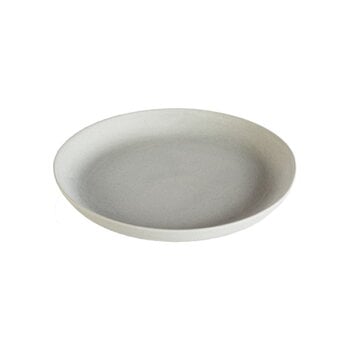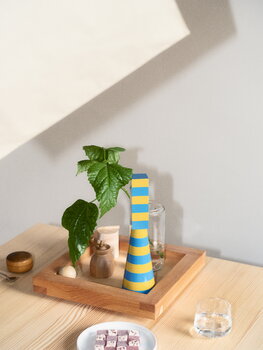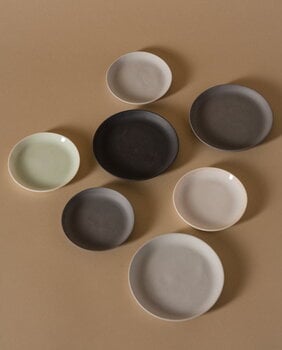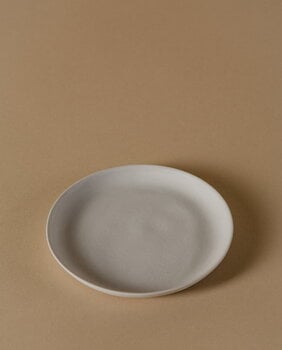The Tassi saucer by Lokal Helsinki is a small porcelain plate with a delicate, harmonious colour. The charming plate suits perfectly as a serving dish for both savoury and sweet snacks. And of course, it works as a saucer, like the name already says: Tassi is Finnish for "saucer". Combine the Tassi plate with Lokal Helsinki's Kahvi coffee cup and the duo will delight your morning coffee breaks and afternoon tea parties. The Tassi plate is designed by ceramicist Nathalie Lautenbacher and handcrafted in Espoo, Finland.
The Tassi saucer is a part of the Lokal Kollektion series by the Helsinki-based gallery Lokal. The collection consists of unique, locally-manufactured products made in small-scale production, many even by hand in the designers' own workshops.
















